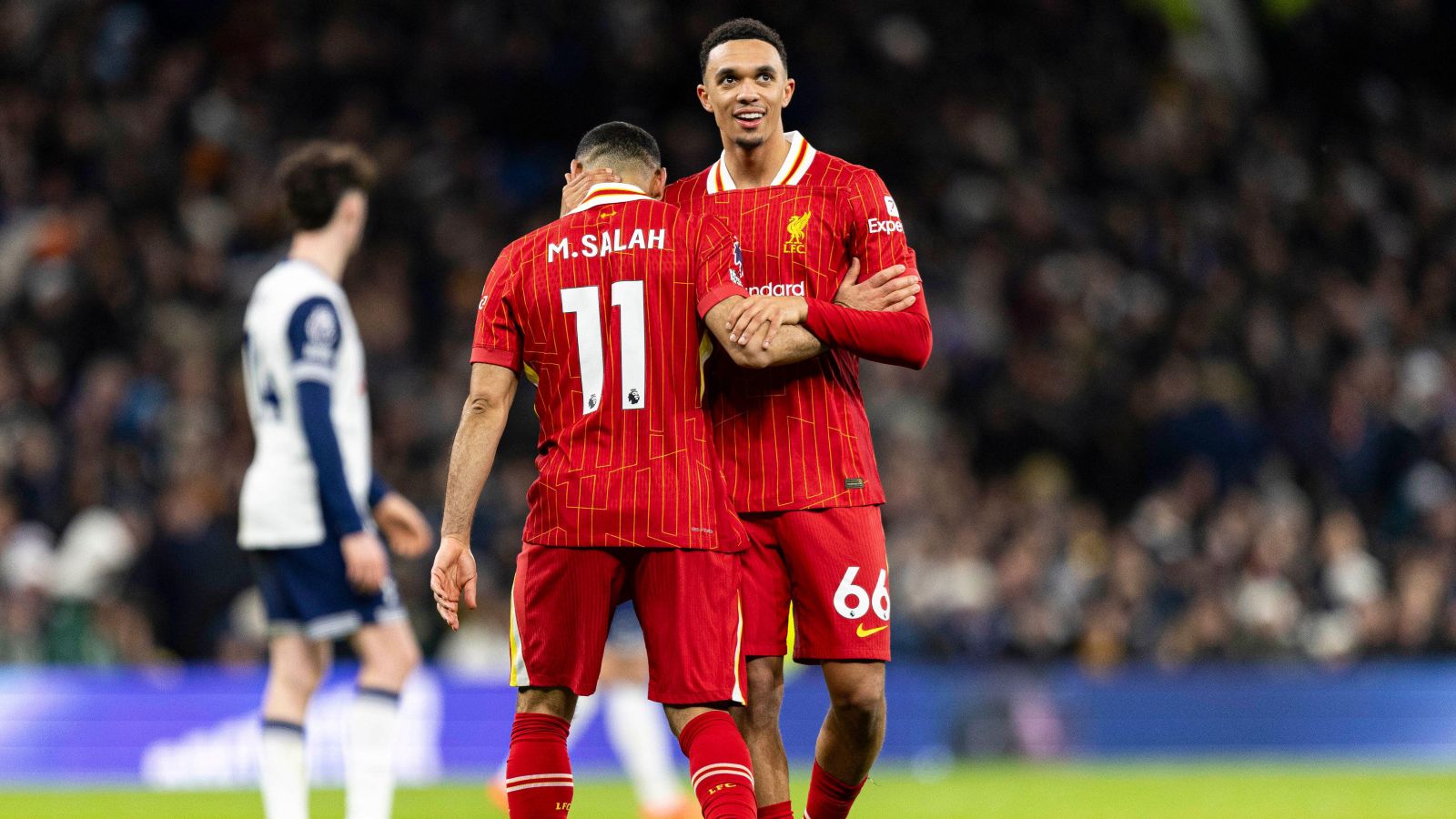If you’re going to be a team that has some pretty deep and fundamental flaws with no obvious solution beyond time and patience, then it’s definitely worth taking the Liverpool approach.
Having those problems to address while sitting flawlessly atop the league table, having already beaten your main rival for the title and cruising six points clear of the only other truly feasible contender definitely feels like a better approach than, say, the Manchester United one where results are just as wretched as the performances.
But there are reasons to suspect Liverpool might not quite have everything figured out the way a perfect start to the Premier League season for a new-look team might suggest.
Clearly, we’re not saying anything is f*cked here. The fact Liverpool have emerged from an unconvincing start is itself impressive; if it does click, the rest of the league might as well pack it all in.
But the sense of something feeling not quite right is tangible. This is not a four-game winning run that looks unstoppable. There is no runaway train feel to Liverpool this season like the start of last season.
Most obviously, as everyone has already noted, there’s the timings of Liverpool’s winning goals. Dominik Szoboszlai’s worldie free-kick against Arsenal in the 83rd minute is the earliest decisive goal Liverpool have scored this season.
Two of their winning goals have come deep into stoppage time, and twice already they’ve had to go to the well again after giving up a 2-0 lead.
The glass-half-full interpretation of all this is that it shows Liverpool to be a champion team with unshakeable belief and determination and big giant balls, capable of getting the job done no matter what setbacks befall them along the way.
And there’s clearly something in that. The ‘hallmark of champions’ cliché about winning when not playing well obviously has truth to it. But it’s supposed to be about digging out results on those occasions when the performance, for whatever reason, just isn’t quite there. Not about digging out desperate late winners in every single game from your actual regular performance level.
Because that, obviously, is unsustainable. So the issue for Liverpool now comes in discovering whether this is who they actually are, in which case you have the attention of Arsenal and Manchester City and Chelsea and, heaven help us all, maybe even at this point Spurs, or whether what Liverpool have managed to do is stumble their way through the inevitable teething problems of a new-look, reshaped team while managing to avoid any actual tangible loss at all.
If it’s the latter, job done. The league is pretty much theirs if they start playing as well as that group of players ought to be capable of playing under a manager who has already proved himself extremely capable of extracting peak performance from a talented group of players.
What if it’s not that, though? What if it’s the first one? What if there is a bigger problem that all that dazzling summer recruitment can’t quite fix?
For all the work they’ve done, for all the thrilling attacking players they’ve signed, do Liverpool still have a Trent problem?
And if they do, does that have the knock-on effect of creating a Mo Salah problem? And from there, you’re quickly at something very integral indeed.
Trent Alexander-Arnold’s departure was tough for Liverpool to take, obviously. He’s a brilliant player, a local player, and Liverpool is a club with a self-fulfilling mythology and lore that doesn’t react well to being pricked by reality. The idea any player – a homegrown one least of all – might actually prefer to play football for someone else, even if that someone else is Actual Real Madrid – pops the bubble.
But that’s tish and fipsy, really. It doesn’t actually affect Liverpool in any way. Losing Alexander-Arnold the footballer is far more vital than having to reconsider an idea.
He is, essentially, irreplaceable. Arne Slot is yet to find any combination of players, new and existing, to replace his overall contribution in the round.
The dazzling goalscoring and assisting form of Salah last season made him look like Liverpool’s cheat code, but perhaps the real cheat code was the playmaking right-back all along. It’s not a new thought, but with the emotional noise that surrounded Alexander-Arnold’s exit, was enough thought actually given to how it would affect actual things that matter?
Salah has started this season in distinctly unconvincing fashion. He can still put away a penalty with aplomb, but the bravura game-bending confidence of last season has gone. Swathes of games pass him by now as he struggles to locate a wavelength on which he and Florian Wirtz and Hugo Ekitike can successfully operate together.
The near-telepathic understanding built up with Alexander-Arnold over the last six or seven years has, unsurprisingly, not been easily replaced.
Ekitike is the only one of Liverpool’s big summer signings to really come good thus far. And the failure to get a new centre-back over the line at all really does look like an accident waiting to happen. It definitely doesn’t help that Milos Kerkez, the best left-back in the Premier League last year at Bournemouth, is currently a subbed-in-the-first-half-for-his-own-safety liability.
But while so much of the focus landed on the procession of shiny new toys arriving at Anfield, will the most significant move end up being the emotionally wrought early-summer exit of a right-back with a very particular set of skills?
